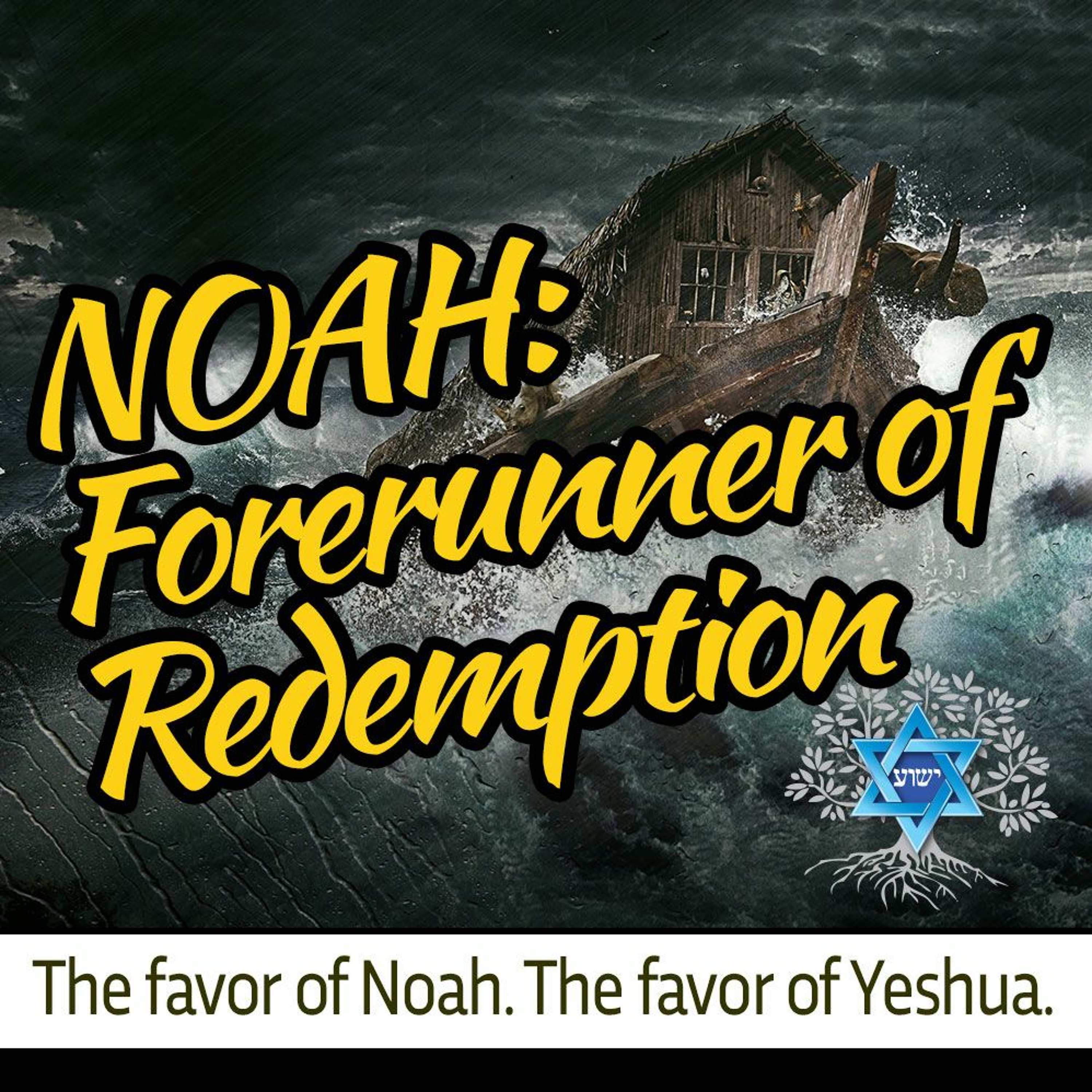Episode Transcript
[00:00:00] Do you ever just wish that people would wake up? It seems there are so many people that are simply sleepwalking through life and don't take their faith seriously. It's a problem of epidemic proportions. And on the other side of the coin, there are the zealots. They are always trying to find more ways to do what's right in the eyes of God. But is zealotry a good or a bad thing? And is there a difference between good zeal and bad zeal? Let's take a look together in this week's five Minute Torah Shalom and blessings from Shalom Macon, the place where disciples of Yeshua learn, connect and grow. I'm Darren, and before I get into the five minutes of my five Minute Torah commentary, let's cover a few quick facts about this week's Torah portion. This week we are studying the portion of avayek Hel Exodus 35:1, 38:20 and here are the three things that you need to know about it. Number one Yom hashabbat the Importance of the Sabbath yes, once again we are reminded of the importance God places on the weekly Sabbath. And just to be clear, he doesn't command his people to worship him on this day. They were to worship him every day. His instruction is always that they cease from going their own way, doing their own thing, and imposing their will on the world through creative endeavors. They were to cease all productive actions and activities of commerce. They As I mentioned at other times, the reference to the Sabbath in this week's Torah portion is a caution against working on the Tabernacle on the Sabbath day, which we'll talk about shortly. They would naturally think that since they were doing God's work in building his holy house, they should justifiably be involved in his holy work on the holy day. But this was not the case. There were, however, certain things that the Lord told them to do on the Sabbath in spite of its sanctity, such as slaughtering the daily and festival offerings. But building his holy house was not one of them. As a matter of fact, God warned the Israelites, whoever does work on it, meaning the Sabbath day, shall be put to death. Exodus 35:2 yes, the Sabbath really is that big of a deal to the Lord. Number two Building the Mishkan the work Begins God put two men in charge of the construction of the Mishkan, or Tabernacle. They were Beitzalel and Ohaliav. A few weeks ago, in the Torah portion of Terumah, we learned about God's appeal to the children of Israel for the materials that would be used for the construct the Mishkan. This week we read about these materials being brought in abundance. So much so that Moses had to tell the children of Israel to stop bringing their gifts with these materials. Bezalel and his team of artisans not only built the Mishkan and its furnishings, but they made the priestly garments as well. When everything was complete, Moses commanded that the Mishkan be erected and everything be consecrated for service, including the anointing of the priests and number three, the lonely Parasha. Torah Readings during Leap Years Normally we read a single Torah portion each week. However, there are times that we double up and read too. This week is an example of one of those Torah portions. Sometimes we read the portion of Vayakel and Pekkodei together. Other times we read them separately. Why? It's because the way the biblical calendar works during a biblical leap year and an entire month adar2 rather than just an extra day is added to the biblical calendar. This creates a situation where there are four extra sabbaths that each require a Torah portion. On a non leap year, these portions are read together. However, they're split during a leap year. But there are other double portions as well. We have situations where we have week long festivals like Passover and Sukkot, and if they start toward the beginning or middle of the week, then the holiday reading only replaces one regular reading. However, sometimes they begin and end on the weekend, which causes two readings to be replaced by holiday readings. Because of this, we have to double up later on to fit everything in. In all, there are a total of seven potential double portions. They are Vayakel, Pekudei, Tazeria, Mitsora, Achremot, Kerushim, Bahar, Mechukotai, Chukkat, Balak, Matot, Mase.
[00:04:15] Are you a disciple of Yeshua? There are a lot of people who say they are, but when it comes down to it, they really don't even know what it means to be a disciple. Why? Because discipleship is a concept unique to Judaism. It's an intimate relationship between a rabbi and his student. Yeshua called 12 men to be in his inner circle of discipleship, and those 12 men changed the world. What did they know about being a disciple that we don't? I wrestled with this question when I wrote my book the Four Responsibilities of a Disciple. There were a ton of books already written on how to make disciples, but I wanted to know what it meant to be a disciple because it seems that all of these disciples that were being made in our day really weren't having an impact on the world around them like they should. I found out that there were four responsibilities every disciple should know and that when implemented, living out these four responsibilities has the potential to to change the world. If you want to know what it means to be a true disciple of our Master Yeshua, then check out my book, the Four Responsibilities of a Disciple, using the link below. This week's Torah commentary is called Zeal Tzitzit, Knowledge and Humility and comes from my book 5 Minute Torah, Volume 3 Although the portion of Vayikel is almost entirely focused on the construction of the Tabernacle, it begins by reminding the children of Israel that no work may be done on the Sabbath. Why does it begin here rather than jumping right into how to construct the Tabernacle? Because placing the topic of the Sabbath against the construction of the Tabernacle was God's way of defining the boundaries of the Sabbath. However, there's another layer to understand this point, and it actually connects back to the golden calf. As we know, while Moses was up on Mount Sinai receiving the Torah, the children of Israel decided to make a golden calf to worship. Why did they do this? Did they simply give up on the God who had delivered them from the hand of Pharaoh and decide to return to the pagan deities of Egypt? No. In their zeal to worship their deliverer, they did so in a way they were most familiar. They instinctively used their most precious resources to create something they believed would connect them to the Lord. After creating the idol, they said, tomorrow shall be a feast to the Lord. Exodus 32:5. But what they created was not what God wanted. He wanted them to create the tabernacle to serve as a connection between heaven and earth, not a golden calf. After this incident of the golden calf, the Lord had to constantly remind them, these are the things that the Lord has commanded. Even though they had a spiritual zeal that desired to serve God wholeheartedly, it was misguided and needed proper direction. Another example of misguided zeal happened with king Uzziah in 2 Chronicles 26 King Uzziah thankful to the Lord for all he had done for him, that he wanted to personally offer incense inside the sanctuary. But because of this, the Scriptures describe Uzziah by saying, he grew proud to his destruction, for he was unfaithful to the LORD his God. This is 2 Chronicles 26:16. Even though he was zealous, he was considered unfaithful because his zeal was misguided. And although the priests warned him about this, he persisted and offered the incense anyway, and as a result he was stricken with Tzara biblical leprosy and he never recovered. Our Torah portion begins with the boundaries of Sabbath to remind us that things we do for the Lord need to be done within the proper boundaries. Even though God instructed His people to build something for him for an incredibly important purpose, they could not do so on the Sabbath. Many times in our zeal to serve the Lord, we overstep the boundaries that he established simply because of our lack of knowledge or misunderstanding. Although we don't need to wait to perform a mitzvah, a commandment, or a good deed until we have complete knowledge of its details, we need to at least preface it with some knowledge of its boundaries. An example of this in our day is tzitzi, the ritual fringes that the Lord commands all Jewish males to wear on the four corners of their garments. See Numbers 15:37, 41 and Deuteronomy 22:12. Many people who learned that the Torah is still applicable today begin wearing tzitzi out of their zeal to obey God's instructions. However, in their zeal they fail to learn the details of how they are to be made and worn. They're usually made out of the wrong material, are dyed the wrong color, and then attached in a manner that is incorrect and disrespectful. Are they doing this as an act of rebellion? Usually not. Most of the time, no. They are genuinely trying to fulfill the commandment, but they have done so in their own way rather than the Lord's way that was taught to Israel and passed down from one generation to the next. It would have been easy for the Israelites to think that building the tabernacle, in other words, doing the work of God, would take precedence over guarding the Sabbath. Therefore, God included His warning to guard the Sabbath as His final word of instruction concerning the tabernacle. The Lord desires that his people serve him with but zeal without knowledge can sometimes be more destructive than beneficial. In order for our spiritual labors to be accepted by the one we do them for, sometimes we must temper our zeal with knowledge and humility. Yeshua saw that some of the Pharisees of his day had misguided zeal. He called them blind guides. But what about you in your zeal? Have you ever been a blind guide and led someone into a pit without even knowing it? Whether you have or not, you should check out my commentary on the Torah portion. Ki Tavo called the responsibility of influence as a reminder of the weight we carry as disciples of Yeshua Just click on the link right here to check it out.



